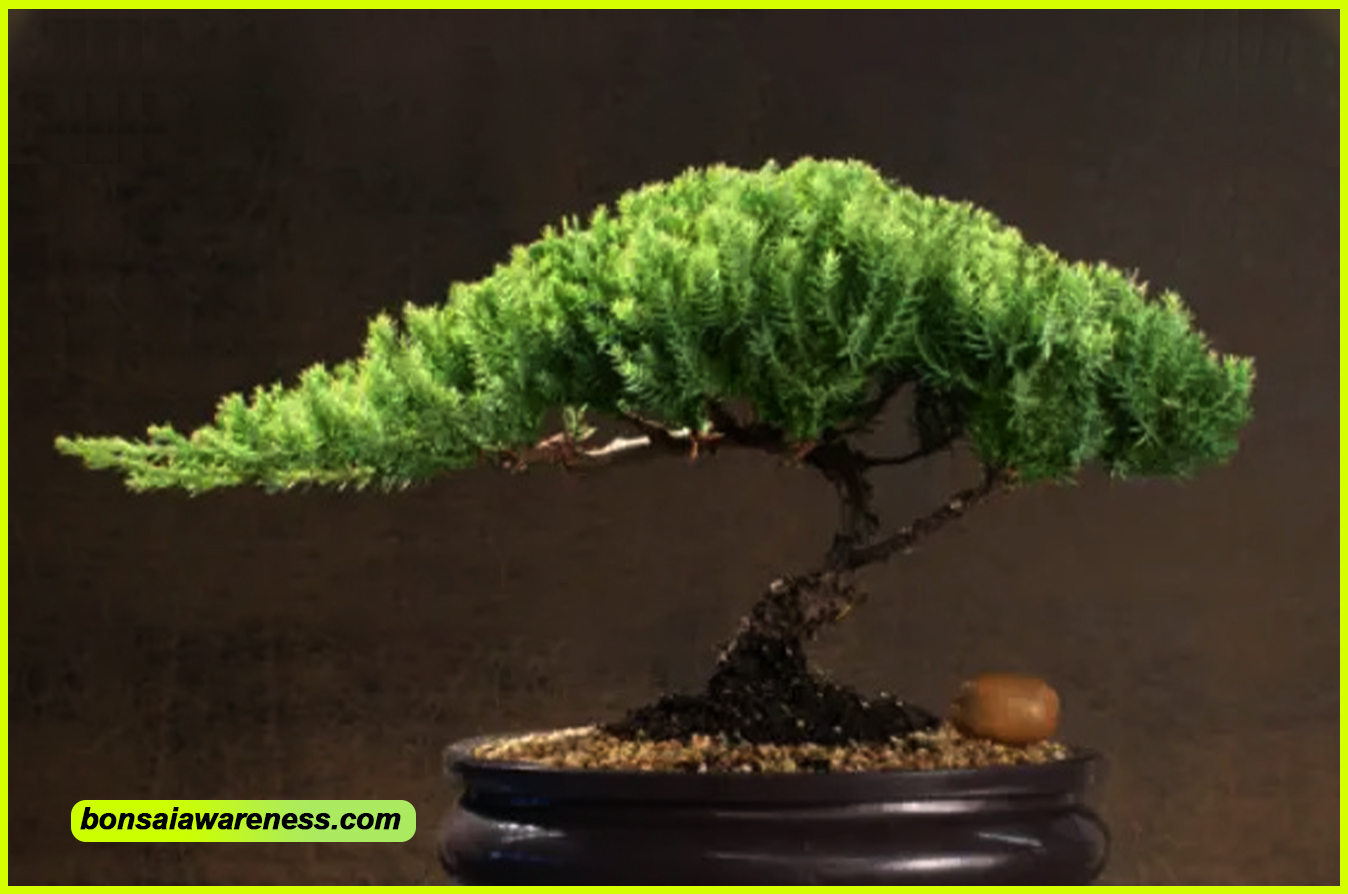Bonsai trees can grow outdoors. Would you like to know more about how to care for them in an outdoor setting?
When it comes to bonsai trees, many people assume they can only be grown indoors. However, contrary to popular belief, bonsai trees can thrive outdoors as well. In fact, many bonsai enthusiasts prefer to grow their trees outdoors due to the natural conditions and elements that contribute to the growth and development of these miniature beauties.
Outdoor bonsai trees have the advantage of receiving ample sunlight, fresh air, and exposure to the natural climate, which play crucial roles in shaping their overall growth and appearance. We will explore the necessary steps and considerations for successfully growing and caring for bonsai trees in an outdoor environment. So, if you’re ready to take your bonsai hobby to the next level, keep reading!
Benefits Of Growing Bonsai Trees Outdoors
Bonsai trees offer numerous benefits when grown outdoors, including better growth and development due to natural sunlight and fresh air, increased resistance to pests and diseases, and the beauty of blending in with the surrounding environment. Experience the satisfaction of nurturing these miniature masterpieces in your own garden.
Can Bonsai Trees Grow Outdoors? Benefits of Growing Bonsai Trees Outdoors: 1. Enhanced Growth: Growing bonsai trees outdoors allows them to thrive in their natural environment, resulting in enhanced growth and overall health. 2. Natural Environment: Outdoor conditions provide bonsai trees with the necessary elements for their development, such as ideal sunlight exposure, fresh air, and natural rainfall. 3. Root Development: Outdoor environments offer bonsai trees ample space for their root system to expand and develop properly. This promotes stronger and more resilient trees. 4. Seasonal Changes: Exposing bonsai trees to seasonal changes outdoors helps mimic their natural habitat. These changes stimulate important processes like dormant periods and spring growth, leading to the tree’s overall well-being. 5. Disease Resistance: Outdoor bonsai trees are less prone to diseases and pests due to the natural balance that the environment provides. This reduces the need for chemical treatments and ensures the tree’s longevity. In summary, growing bonsai trees outdoors presents numerous benefits, including enhanced growth, a natural environment, improved root development, exposure to seasonal changes, and increased disease resistance. It is a rewarding practice that allows these miniature trees to thrive and bring beauty to outdoor spaces.Choosing The Right Bonsai Species For Outdoor Growth
When considering growing bonsai trees outdoors, it is important to choose the right species that can adapt to the climate conditions in your area. Native species are often the best choice as they are already adapted to the local climate and are more likely to thrive. Researching the climate adaptability of different bonsai species can help you make an informed decision. Some species are more suited for colder climates, while others can tolerate hotter temperatures. For example, junipers and pines are hardy and can withstand a wide range of temperatures, making them good choices for many regions. On the other hand, tropical species like ficus and bougainvillea prefer warmer climates and may not survive in colder regions. By selecting the right bonsai species for outdoor growth, you can enjoy a beautiful and thriving bonsai tree in your garden.
Preparing Your Bonsai For Outdoor Growth
Bonsai trees can indeed grow outdoors, but it requires proper preparation to ensure their successful growth in outdoor conditions. Preparing your bonsai for outdoor growth involves key steps such as repotting and root pruning, as well as pruning and wiring.
Repotting allows you to refresh the soil and ensure proper drainage for your bonsai. It should be done every 1-3 years depending on the tree’s age and growth rate. Root pruning, on the other hand, helps to maintain a healthy root system and prevent it from becoming too tangled or restricted. This process involves carefully pruning and trimming the roots before repotting.
Pruning is essential for maintaining the desired shape and size of your bonsai tree. Regularly trimming back new growth encourages branching and helps to create a more compact and aesthetically pleasing tree. Wiring is another technique used to shape and style bonsai trees by gently guiding the branches into desired positions.
By following these steps, you can ensure that your bonsai tree thrives when placed in an outdoor environment, adding beauty and tranquility to your outdoor space.
Caring For Outdoor Bonsai Trees
Bonsai trees are not limited to being indoor decorations. They can thrive outdoors as well. Proper care is necessary to ensure the health and growth of outdoor bonsai trees. When it comes to watering, it is important to keep the soil moist but not overly saturated. Deep watering once a week is generally sufficient, but this may vary depending on the climate and tree species. Mulching around the base of the tree can help retain moisture and regulate temperature. Fertilizing is essential for nurturing the bonsai tree’s growth. A slow-release balanced fertilizer should be applied during the growing season. This helps provide the necessary nutrients for healthy foliage and root development. Protecting the outdoor bonsai tree from pests is crucial. Regularly inspect the tree for signs of infestation and promptly treat any issues. Various organic pest control methods can be used to keep the tree safe and healthy. With proper care, outdoor bonsai trees can flourish and add natural beauty to gardens and landscapes.
Challenges And Solutions For Outdoor Bonsai Growth
Bonsai trees can indeed be grown outdoors, but there are several challenges that need to be addressed. Extreme temperatures can pose a problem for outdoor bonsai growth. Freezing winters can damage the delicate roots and branches, while scorching summers can cause dehydration. It is crucial to protect the bonsai from these temperature extremes by providing adequate insulation. This can be achieved by using protective coverings such as mulch or burlap during winter and creating shade during summer.
Another challenge arises from seasonal changes. Bonsai trees require different care and attention during each season. Winter dormancy requires reduced watering and protection from frost, while spring brings the need for pruning and repotting. Summer demands regular watering and fertilization, and fall calls for leaf trimming. Constant monitoring of the bonsai’s soil moisture, sunlight exposure, and overall health is vital to ensure its successful growth outdoors.
Frequently Asked Questions Of Can Bonsai Trees Grow Outdoors
Can Bonsai Trees Survive Outdoors?
Yes, bonsai trees can survive outdoors as long as they are provided the necessary care and environmental conditions. It is important to choose the right type of bonsai tree that is suitable for outdoor growing and to protect it from extreme temperatures, strong winds, and excessive sunlight.
How Do You Care For Bonsai Trees Outdoors?
To care for bonsai trees outdoors, you should regularly water them, ensure proper drainage, provide adequate sunlight, protect them from extreme weather conditions, prune and shape them regularly, and fertilize them at the appropriate times. Also, make sure to repot them when necessary and protect them from pests and diseases.
What Are The Benefits Of Growing Bonsai Trees Outdoors?
Growing bonsai trees outdoors offers several benefits, including improved air quality, stress reduction, natural aesthetic beauty, and the opportunity to connect with nature. Outdoor bonsai trees also add a unique touch to garden landscapes and can be a rewarding and fulfilling hobby for enthusiasts.
Can All Bonsai Trees Be Grown Outdoors?
Not all bonsai trees can be grown outdoors. Some bonsai tree species are better suited for indoor growing due to their specific temperature, humidity, and sunlight requirements. It is important to research the specific needs of each bonsai tree species to determine if they are suitable for outdoor cultivation.
Conclusion
Outdoor growth for bonsai trees is feasible with the right care and attention. By understanding the specific needs of each tree species and ensuring proper environmental conditions, enthusiasts can create thriving outdoor bonsai gardens. However, it is crucial to research and consider factors such as climate, sunlight, watering, and protection against extreme weather conditions.
By following these guidelines, bonsai lovers can enjoy the beauty and tranquility of these miniature trees in their outdoor spaces.


Leave a Reply